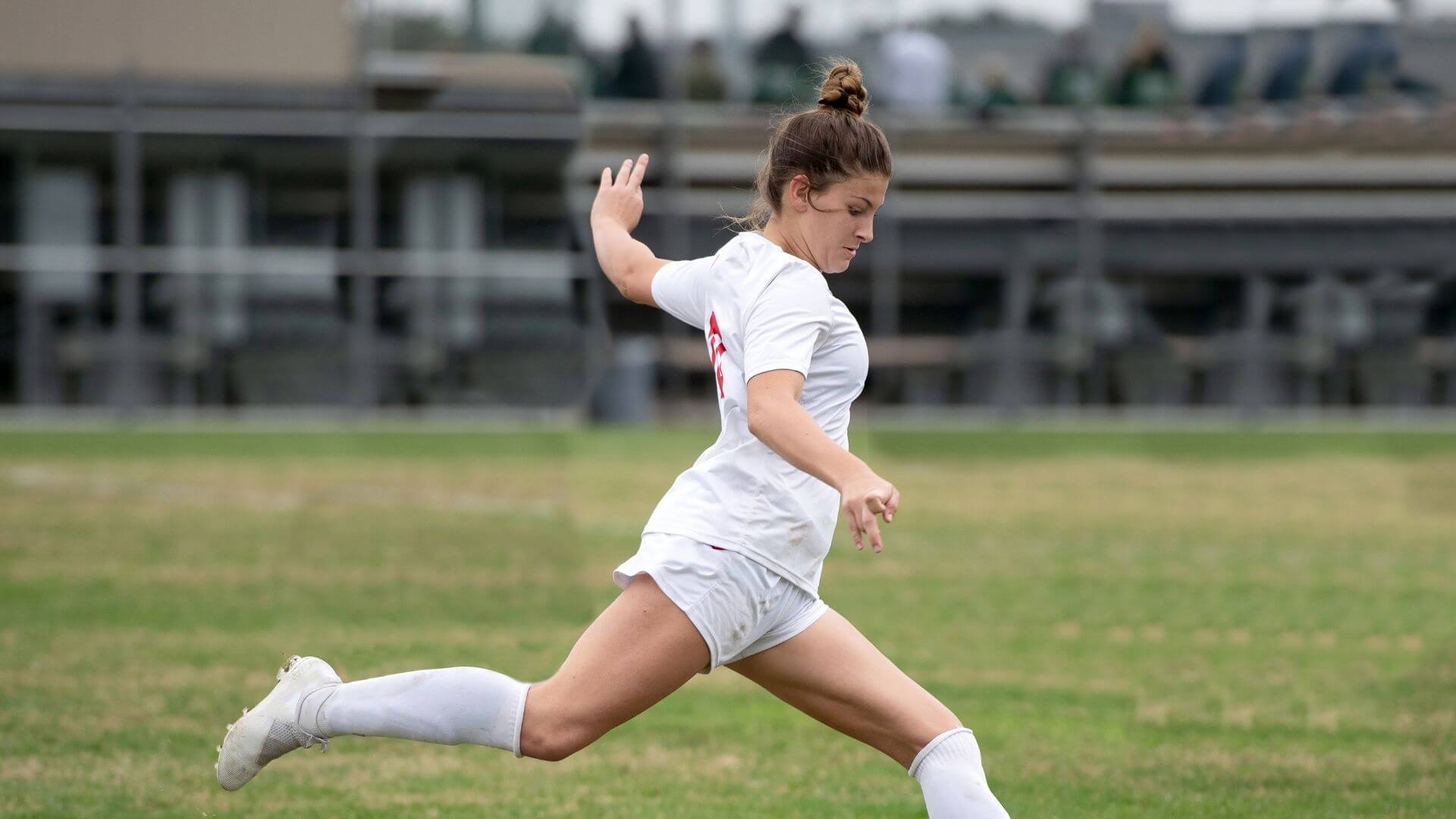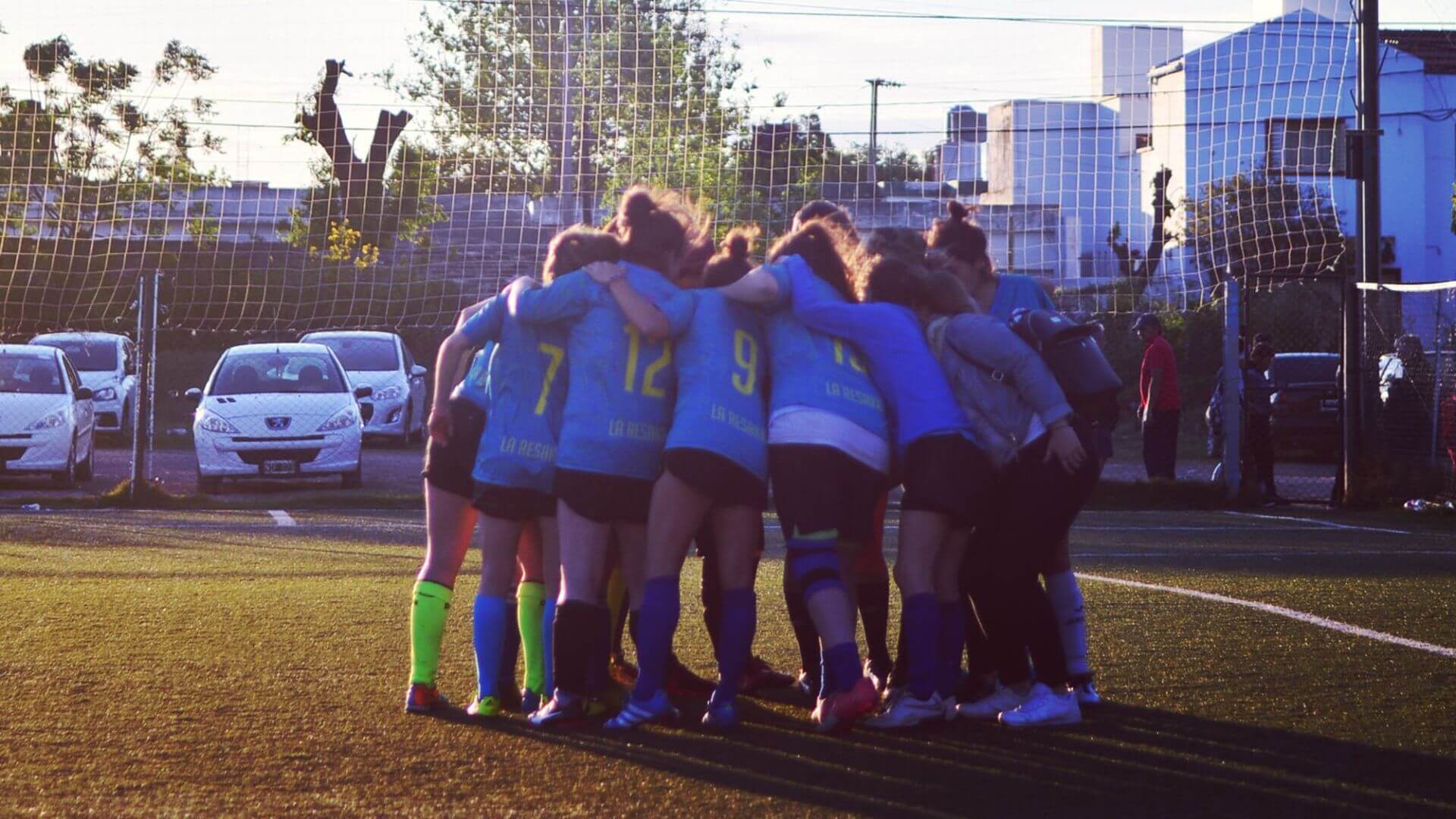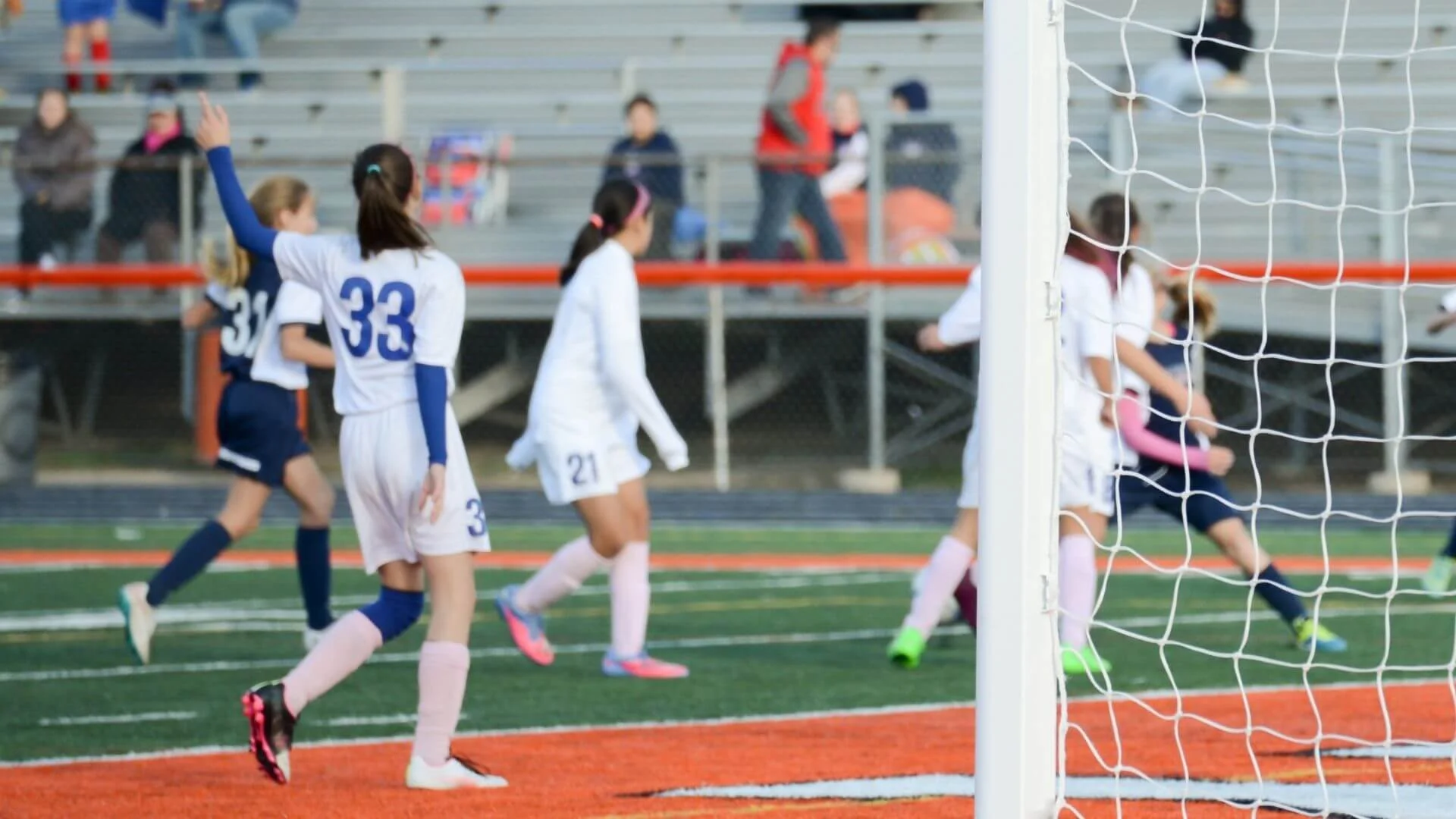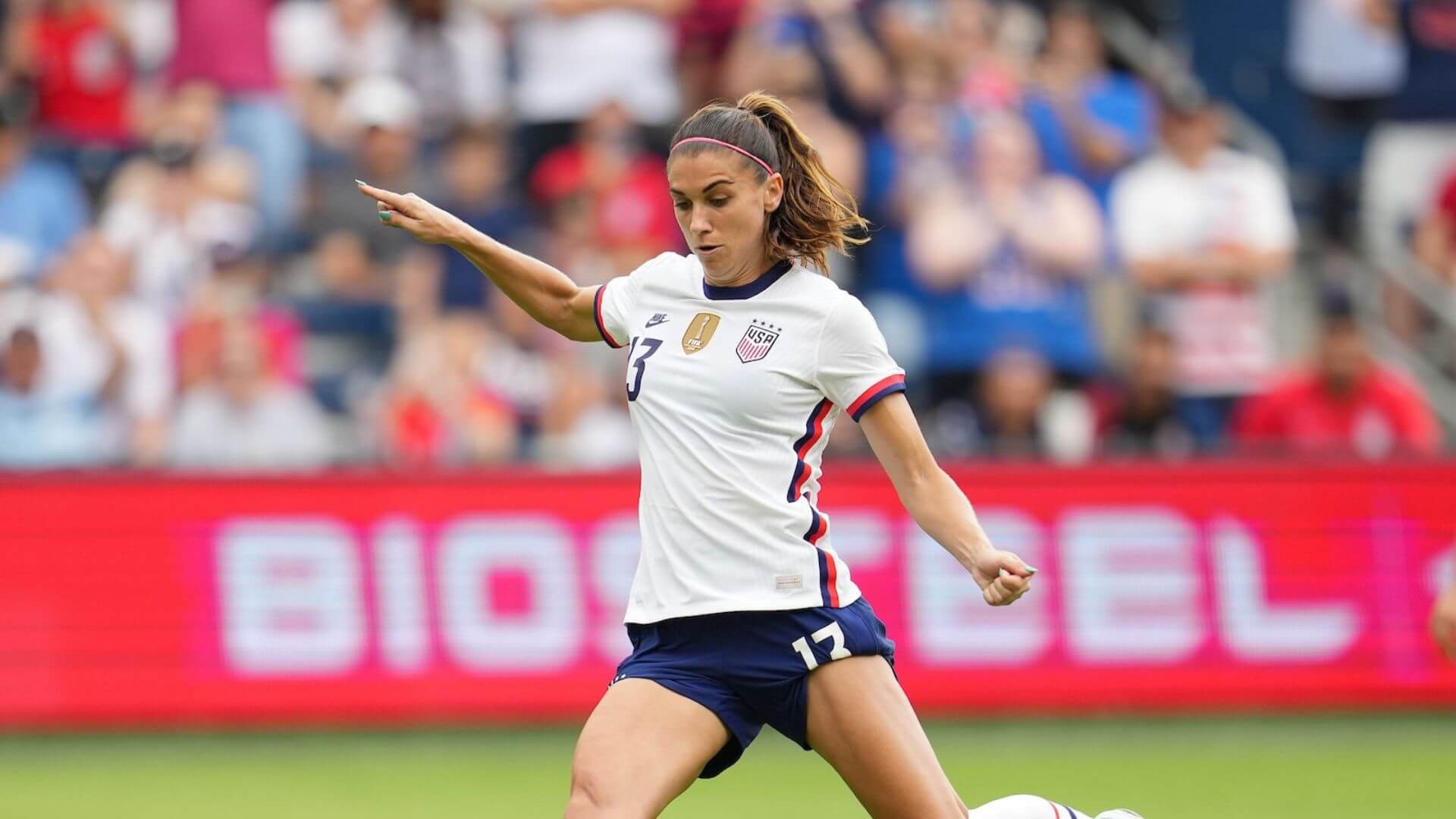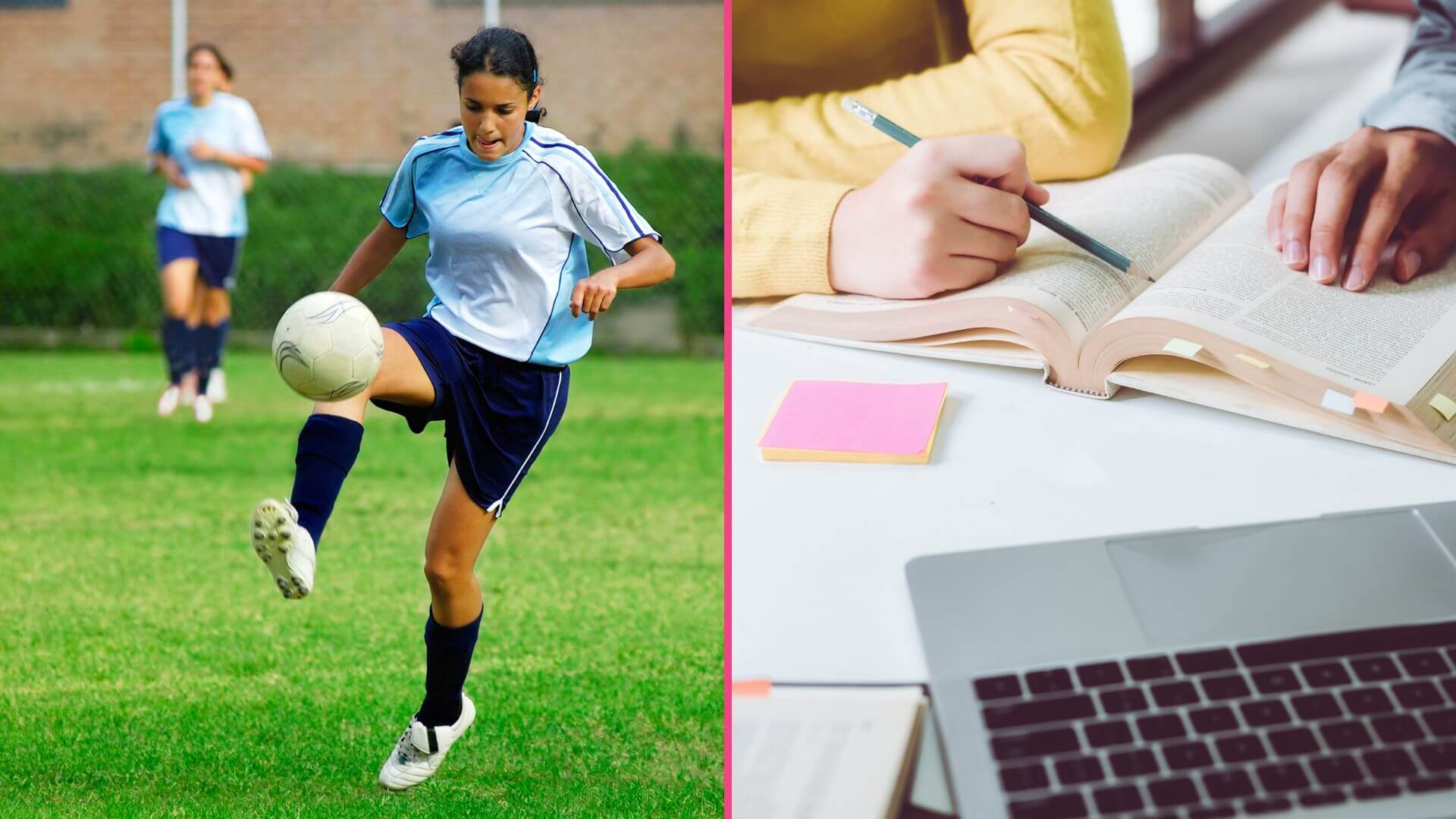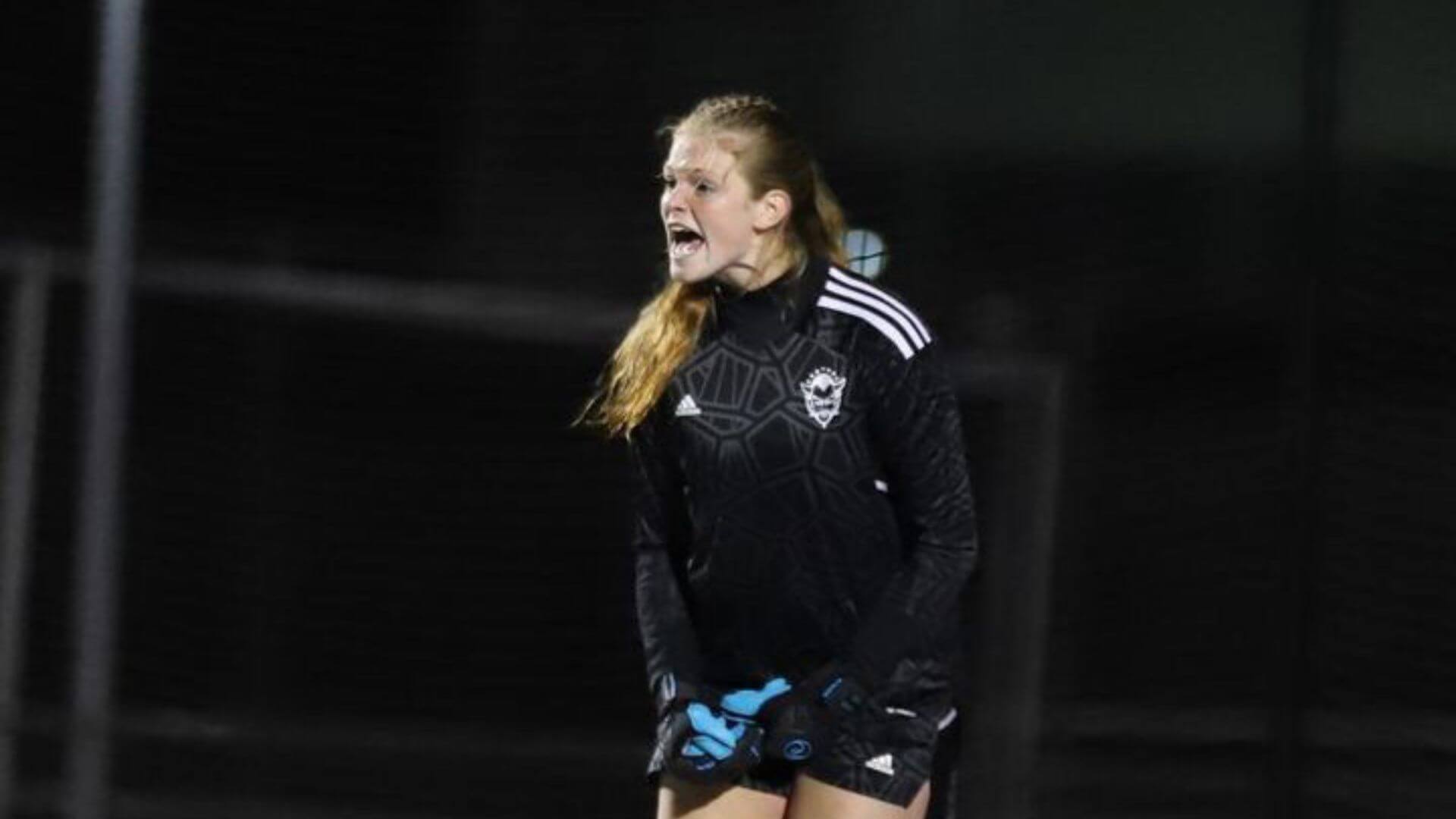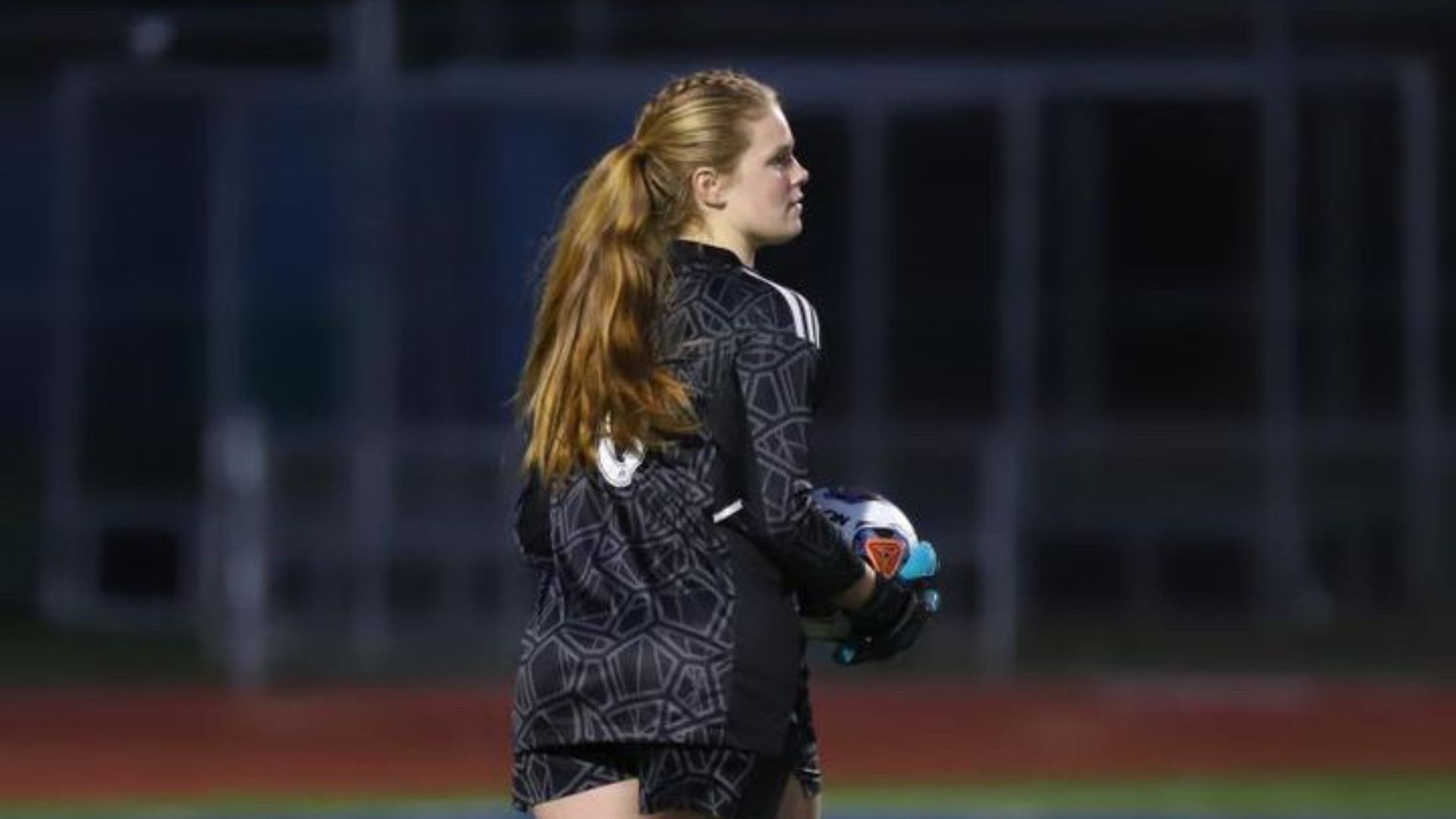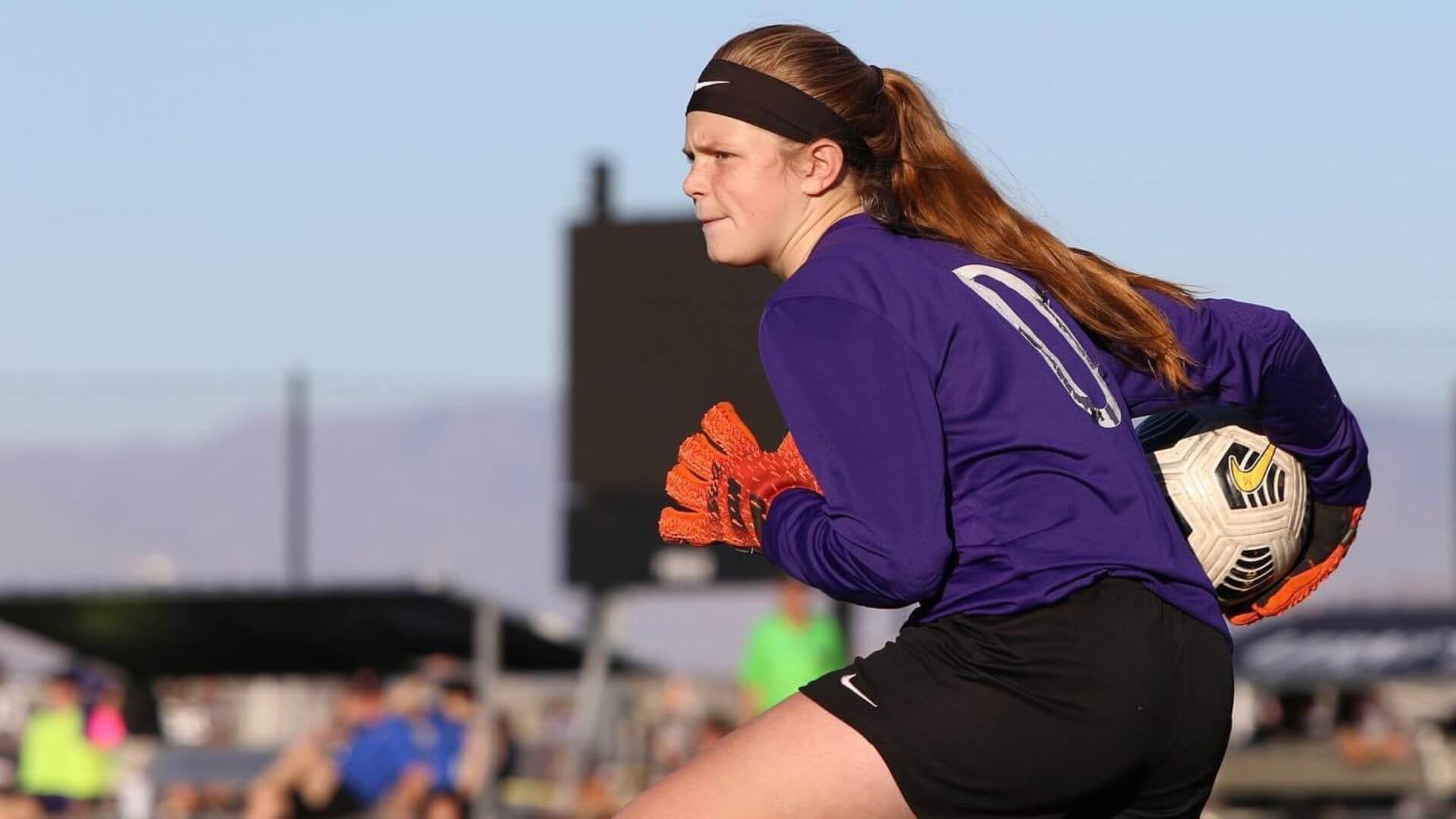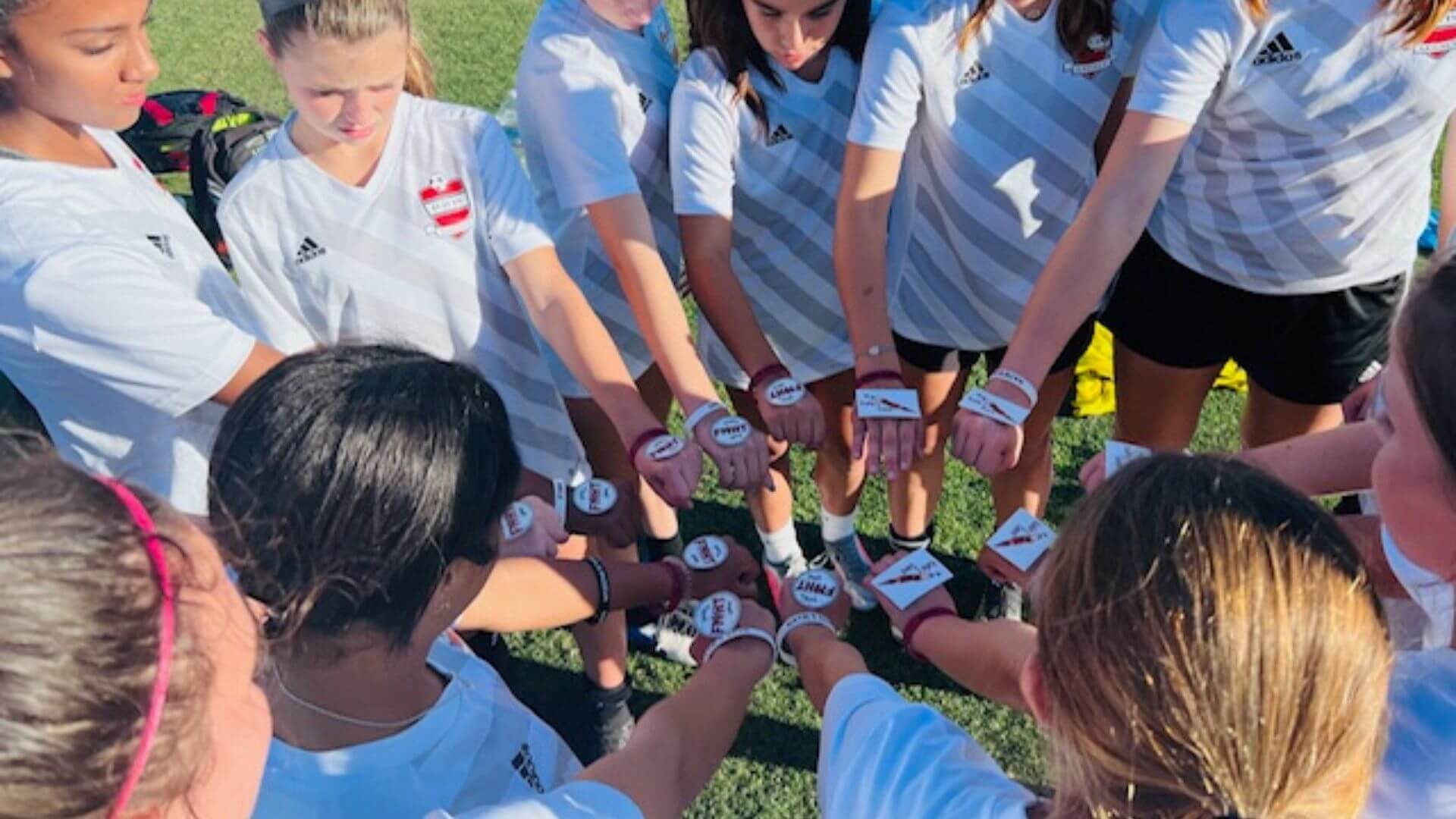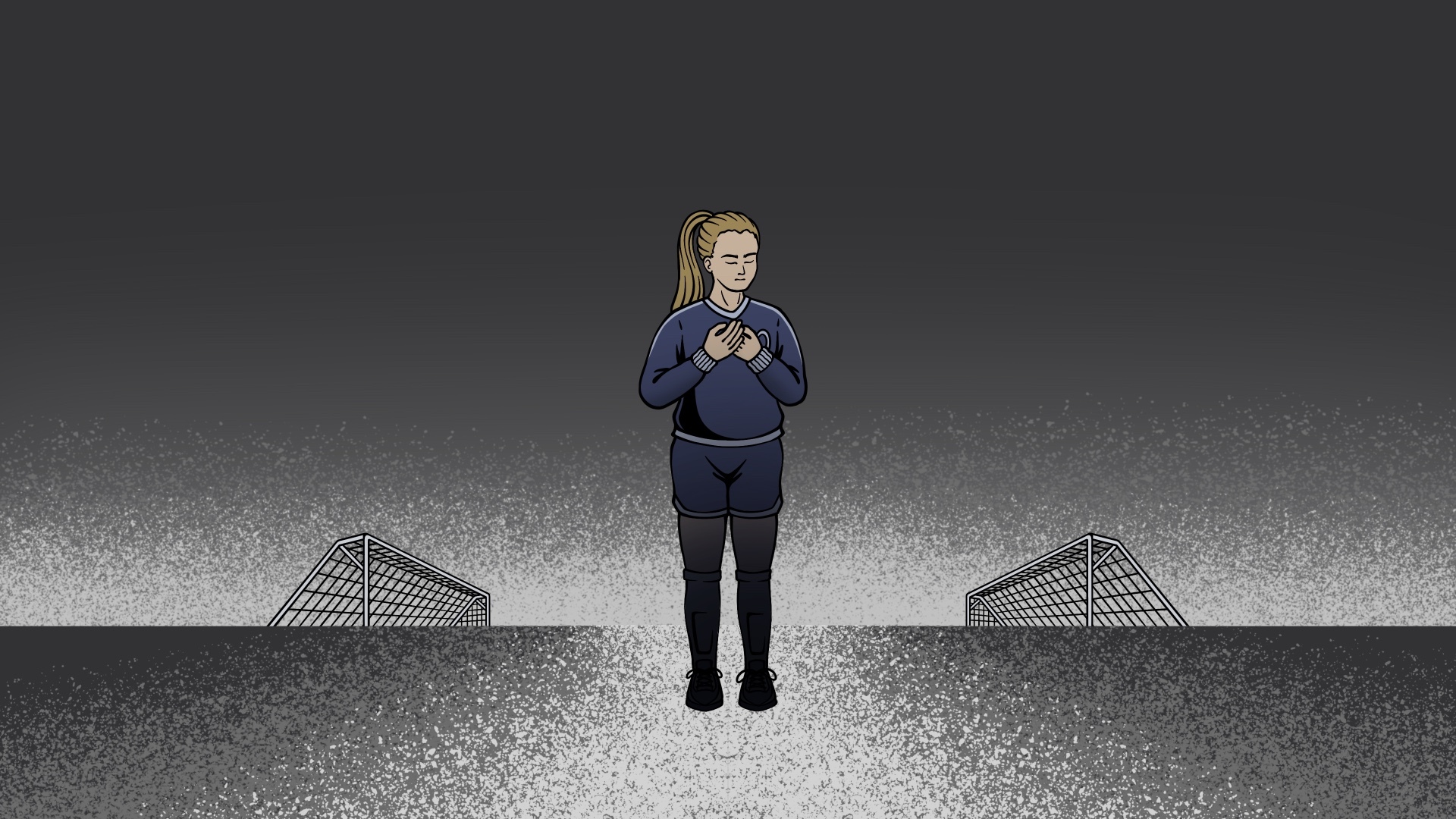Today’s Competitive Landscape for Student-Athletes, a 15-year-old Goalkeeper’s Perspective
Today, student-athletes are faced with more pressure from the games they play in. While there has always been pressure to be successful in sports, social media and having public student-athlete profiles on various soccer recruiting websites and trying to make the top athlete ranking lists, are very new. Now, everyone can easily see athletes’ stats and other information. This creates an additional layer of stressors that student-athletes never had to face twenty years ago.
One of the biggest stressors is comparing yourself to everyone else. With the hope of being noticed and getting into my top-choice college, it’s hard not to get caught up in all of it. On top of self-comparing, we have all the other typical student-athlete challenges:
- Being understood by the coaches and teammates.
- Creating a balance between athletic and academic responsibilities.
- Getting enough playing time and recognition.
- Understanding our role on the team.
- Coping with the pressure to succeed.
- Our specific positional, athletic performance
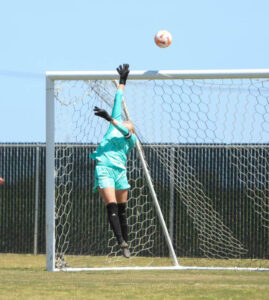
I found that my position on the pitch and the mindset of being a goalkeeper has presented their own unique demands. The position is quite psychologically demanding, as I am not just responsible for what happens inside the 18 but am also responsible for reading the field. I assume the role of a coach, acrobat, the 11th player on the pitch, and team mentor. On top of these responsibilities, I am mentally preparing and anticipating an attack on my backline.
As much as I try to meet all these expectations; stop shots, receive crowd cheers, and walk away with an impressive highlight reel or stats to share on recruiting sites, I still feel a little short of the mark. And while I understand the importance of sports programs taking the time to speak to athletes and their families about that “car ride home” after a rough match, I think more concern should be placed on the pressure the athlete is placing on themselves to meet these new demands.
In a lost match, I am not just walking off the pitch without a win like when I was eight or nine. I am now stressing over if I have enough footage of my skills to highlight for a reel of my own while avoiding destructive self-criticism. To top it off, a few hours later, I might see a goal scored on me in someone else’s highlight and recruitment reel.
It’s definitely hard to try to navigate through all these layers of the sport and being a competitive athlete. It is even harder not to let it affect me and my performance the next time I step on the pitch.
This is why incorporating mindset and mental skills training into each sports program curriculum is imperative. This is the basic foundation and key element in helping youth and student-athletes build a long, healthy, successful relationship in sports.
For me, when I reshaped my definition of failure and what this looked and felt like, it was freeing. Failure isn’t a failure if players can be taught it is actually growth and important to becoming a stronger and more successful athlete.
I now try to view lost matches, goals getting past me, or upset and vocal sideline spectators–which are frequent occurrences–as just occupational hazards of the game and being a competitive athlete. It took time and effort to develop more of a growth mindset in how I viewed athletic performances and training. It still requires me to continue to work on things like self-worth, self-esteem, and self-confidence.
When I did start to notice my self-worth and self-esteem improving, I became less interested in focusing on others and comparing myself to them. I didn’t do this alone; I had support. I utilized resources like Female Footballers, Jennifer Ireland, a mental skills coach, and reading posts and books like from Dan Abrahams (a sports psychologist).
I also actively seek advice and support from a couple of coaches who have known me for years (especially for how to balance and prioritize the recruitment side).
It truly is surprising that with the research on student-athletes’ susceptibility to mental health issues due to the various stressors they experience in club and school sporting environments, not more is provided. It doesn’t take much to incorporate a weekly mindset and mental skills aspect into a program’s curriculum. This could be anywhere from:
- Providing players with journals and weekly spending as a team, thirty minutes writing down ways to become more self-aware, respond to failure, how to build confidence as a habit, etc…
- Open team conversations on how to help athletes adjust their actions, thoughts, feelings, and physical sensations to improve their game.
- Self-talk and team-building games.
- Frequent player check-ins with the coach.
- Utilizing resources from mental skills coaches, sports psychologists, and programs like Female Footballers.
- Quarterly check-in or meetings with a club college advisor for athletes 15-up.
I know I’m only fifteen, so I’m sure there are many other ideas and ways to incorporate mindset skills training. With youth sports becoming one of the biggest industries, why aren’t we investing more in this?
My request, if you’re reading this, is if you are a coach, player, or parent, please reach out to your sports programs, especially before selecting to participate in that program, and ask what their mindset and mental skills curriculum looks like. If they don’t have one, ask how one can be started. Together we can not only change the narrative but the game for our student-athletes.
_
GIRLS SOCCER NETWORK: YOUR SOURCE FOR GIRLS SOCCER NEWS



